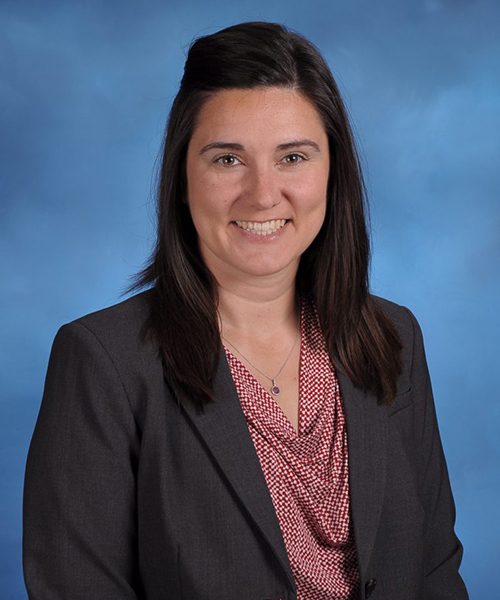Housing, Employment, Family & Disability Clinic Student Wins Jury Trial
Summar Sparks (’20) won her client a settlement in housing court last semester.

It is not often that housing court cases reach trial. However, as a second-year student, Summar Sparks (’20) represented her client in front of a judge and jury—and won.
The Housing, Employment, Family & Disability Clinic, which is part of BU Law’s Civil Litigation Clinical Program, provides students with the opportunity to represent Boston residents in legal cases under the supervision and guidance of clinical professors. Working from Greater Boston Legal Services in downtown Boston, students are able to apply the legal theories they have learned in class while managing their own cases in a collaborative environment.
 Sparks helped her client, who was facing eviction, raise counterclaims against the landlord for poor conditions in the apartment on the premise of a breach of warranty of habitability, ultimately arguing that the client could not be evicted because of the conditions of the apartment.
Sparks helped her client, who was facing eviction, raise counterclaims against the landlord for poor conditions in the apartment on the premise of a breach of warranty of habitability, ultimately arguing that the client could not be evicted because of the conditions of the apartment.
With guidance from Civil Litigation Program Director Robert Burdick, Sparks had less than a month to prepare for her first jury trial. They worked through the weekends preparing the client and role-playing to get a feel for the trial proceedings. According to Burdick, Sparks was responsible for everything from the jury selection process to writing and delivering the closing statement.
“It’s great to get so much feedback [working with Professor Burdick],” Sparks says. “It’s also wonderful because you have so much autonomy.”
She had such command over the case that she wonders if the jury even realized she was a student. Only the judge, the landlord and their lawyer, and her client were informed that Sparks was still in law school.
“She really kept her composure,” Burdick says. “The third parties in the courtroom came up to me and were extremely impressed with just how calm and composed she was. Summar presented herself the way a lawyer with lots of experience would have conducted the trial.”
One of the memorable experiences from the trial, Sparks says, was presenting the case to the jury in a compelling manner: an opportunity that few law students have in housing court. According to Sparks, she enjoyed having “the jury as the fact-finder and primary audience,” even though many of the jurors had little-to-no legal experience.
“The jury pool was very diverse and representative of the Boston community,” Sparks says. “It was so moving to see these people come to do this civic duty and to resolve this conflict that the parties weren’t able to resolve on their own.”
Sparks’s interest in law originated when she was an adjunct teacher at Bentley University. While completing a doctorate in American literature, Sparks had the opportunity to contribute to contract negotiations as a member of the bargaining committee for the school’s adjunct unionization effort. She decided to take her interest in labor and employment issues with her passion for academia and come to BU Law.
Having already spent her first-year summer at the Massachusetts Department of Labor Relations, Sparks will work this summer at the US Department of Labor field office in Boston, where they focus exclusively on litigation. She knew that the Civil Litigation Clinic would give her an advantage this summer.
“[The trial] really affirmed that I enjoy direct representation and how much I enjoy educating others about the law,” Sparks says. “I think it connected well to my previous experiences as an educator.”
For Sparks, the opportunity to offer legal support to clients who are often lower-income or below the poverty line comes as an honor. She says that, like anyone who may seek legal assistance while in a vulnerable position, it is important to establish a trusting rapport with the client. This helped her client feel comfortable sharing the facts surrounding her eviction which Sparks needed in order to win the case.
“All of the work seems so much more purposeful,” Sparks says. “You really want to get the best outcome possible for this person who’s trusting you to represent them.”
Reported by Shea Robinson (COM’21)
Related News
- Staying in the Fight: Nicole Greenidge-Hoskins (’91), general counsel of the Human Rights Campaign, has been on the hunt for justice
- William Perez Awarded Roscoe Trimmier Jr. Diversity Scholarship
- Service Over Spring Break
- How to Build a Community: Casey Baines (’17)